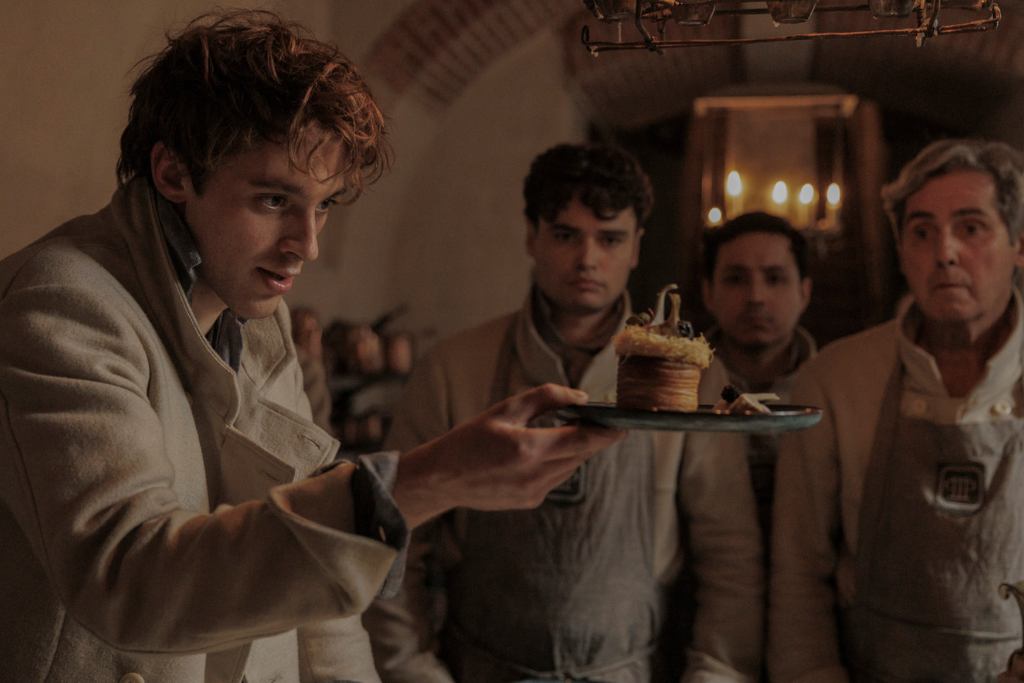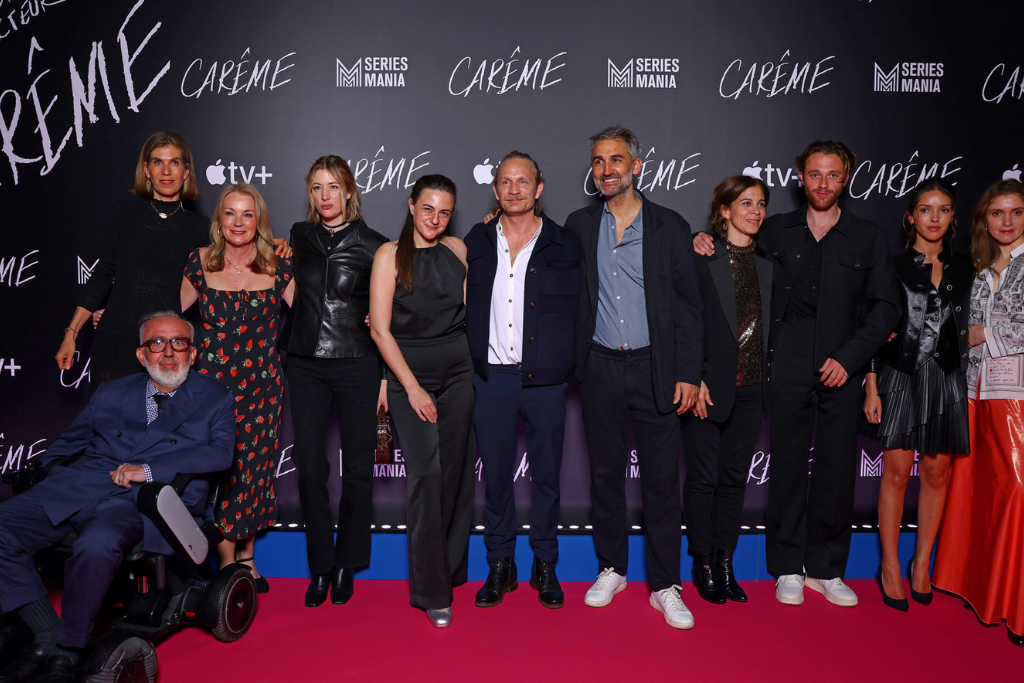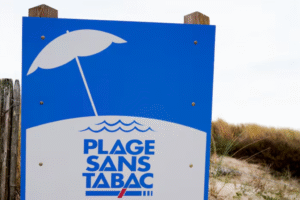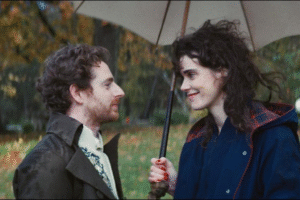Overview of ‘Carême’ and Its Premiere on Apple TV+
‘Carême’ is a highly anticipated French television series that made its global debut on Apple TV+ on June 3, 2025, marking a significant milestone for contemporary francophone storytelling on international streaming platforms. The series, created by acclaimed writer-director Élodie Rousseau, unfolds over eight episodes, each lasting approximately 50 minutes. From the outset, Apple TV+ positioned ‘Carême’ as a flagship release in its 2025 summer lineup, emphasizing the show’s blend of dark humor, social commentary, and suspenseful narrative. In a press release, Apple TV+ Senior Vice President of International Programming, Marc Lévy, stated: “With ‘Carême,’ we are proud to present an authentic and gripping French narrative that resonates universally—its themes of identity, morality, and resilience speak to audiences far beyond France.” By investing in a wholly French production with top-tier talent both in front of and behind the camera, Apple TV+ aims to deepen its commitment to global content. This release underscores the platform’s strategy of celebrating diverse voices: as showrunner Élodie Rousseau noted, “We wrote ‘Carême’ not only for a French audience but for anyone who appreciates complex characters grappling with profound ethical dilemmas.”
Premise and Storyline
Set in the provincial, fictional town of Beaumont-sur-Lys, ‘Carême’ follows the lives of three central protagonists during the eponymous Lent season, exploring how faith, temptation, and sacrifice intersect in a close-knit community. The narrative centers on Claire Martin, a diligent local journalist; Father Gabriel Laurent, a young, idealistic priest newly assigned to the parish; and Amine Haddad, a disillusioned high-school teacher returning to his hometown after years abroad. Each character’s arc converges around a series of unsettling events—a missing teenager, a mysterious fire at the local chapel, and the resurfacing of a long-buried town secret. As Claire unearths inconsistencies in the parish’s history, Father Gabriel grapples with his vows and gazes into the crisis of faith that plagues the congregation, while Amine must reconcile with the sins of his past to protect his sister. Creator Élodie Rousseau explained in an interview: “I wanted to examine how Lent’s discipline—fasting, prayer, and almsgiving—can either fracture or fortify human bonds when tested by adversity.” This tension-driven plot weaves together elements of crime drama, spiritual inquiry, and family saga, reflecting contemporary French society’s struggles with tradition and modernity.
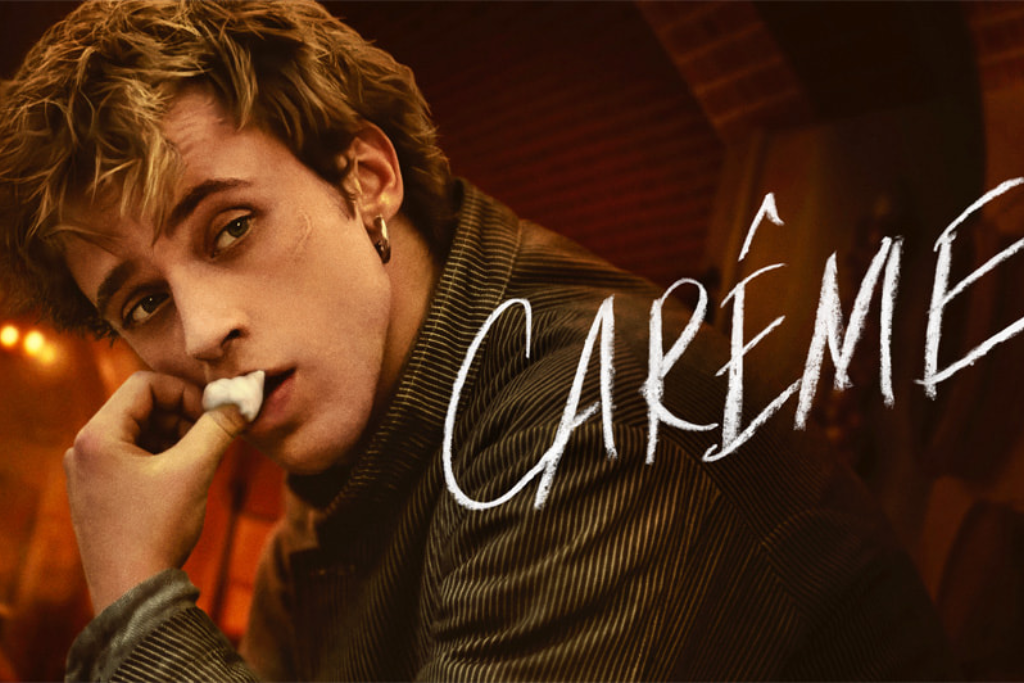
Cast and Characters
The ensemble cast of ‘Carême’ features a blend of established French actors and promising newcomers. At its heart is Camille Fournier, who portrays Claire Martin with a soulful intensity that anchors the series. Fournier, best known for her César-nominated performance in “La Nuit Blanche,” brings a nuanced vulnerability to the role. Opposite her, Bastien Delogne embodies Father Gabriel Laurent; Delogne’s youthful aura and restrained expressiveness capture a priest torn between doctrinal duty and empathy. Amine Haddad is portrayed by Karim Messaoudi, whose return to French television has been widely praised; Messaoudi infuses Amine with a brooding magnetism that conveys the character’s internal conflict. Supporting roles include Élise Mercier as Mayor Odile Durand, whose political ambitions clash with her moral compass, and Vincent Bruneau as Detective Luc Moreau, offering a skeptical outsider’s perspective on the town’s secrets. In an Apple TV+ behind-the-scenes featurette, director Élodie Rousseau remarked: “Casting was crucial. We needed actors who could convey unspoken emotions—how a glance reveals layers of guilt, longing, or defiance.” The chemistry among the cast members fosters an immersive atmosphere, deepening viewers’ investment in how each character confronts the trials imposed by both the Lenten calendar and personal histories.
Production and Direction
‘Carême’ was primarily shot on location in the Occitanie region, utilizing the picturesque yet somber ambiance of medieval villages and rolling vineyards to evoke an almost timeless environment. Principal photography spanned from October 2024 to February 2025, allowing production to capture the stark, wintry landscapes that underscore the show’s themes of austerity and introspection. Élodie Rousseau, who directed five of the eight episodes, collaborated closely with Director of Photography Lucien Moreau to craft a visual style marked by subdued color palettes, natural lighting, and prolonged takes that heighten tension. In a Vimeo Town Hall event, Moreau explained: “We used primarily natural light or practical sources—candles, streetlamps—to reinforce the series’ visceral connection to tradition and faith.” The remaining episodes were helmed by guest directors Sophie Leclair and Mehdi Benouda, each bringing distinct sensibilities: Leclair’s background in psychological thrillers lent episodes 3 and 4 a claustrophobic intensity, while Benouda’s nuanced handling of character-driven drama enriched episodes 6 and 7. Music composer Jeanne Menard’s haunting score, recorded with a small chamber ensemble, further accentuates the series’ atmospheric tension. Through meticulous location scouting, art direction, and a commitment to practical effects, the production team realized a world that feels simultaneously lived-in and subtly unsettling, heightening ‘Carême’s’ immersive quality.
Thematic Exploration and Symbolism
At its core, ‘Carême’ delves into themes of moral ambiguity, redemption, and communal complicity, using the Lenten period as both literal and metaphorical framework. The concept of fasting—abstaining from certain comforts—manifests across storylines: Claire’s self-imposed vow of journalistic integrity, Father Gabriel’s struggle to reconcile his clerical obligations with empathy for the vulnerable, and Amine’s attempt to atone for past transgressions. Each character’s “fast” becomes a personal crucible, compelling introspection. Élodie Rousseau commented in a Canneseries panel: “Lent is a time for reflection, but it also exposes fractures—both societal and individual. I wanted to show how faith can be weaponized, how silence can become complicit in injustice.” Throughout the series, recurring imagery—empty communion cups, barren olive branches, and candlelit confessionals—serve as visual metaphors for sacrifice and hidden truths. The missing teenager subplot underscores the notion of a lost soul, while the fire at the chapel symbolizes both purification and destruction. By weaving biblical allusions—such as references to Judas’s betrayal and Christ’s temptation—into modern dilemmas, ‘Carême’ challenges viewers to question the nature of faith when institutions fail and to consider how personal responsibility intersects with collective morality.
Reception in France and Critical Responses
Upon its domestic broadcast on France 5 in April 2025, six weeks before its international streaming premiere, ‘Carême’ garnered substantial acclaim from critics and audiences alike. The French daily Le Monde lauded the series as “a masterclass in restrained storytelling, where silence speaks volumes and confession reveals as much as action.” Télérama awarded it four out of five stars, praising the “elegant cinematography and the emotional gravity brought forth by the impeccable cast.” Viewership ratings on France 5 peaked at 1.2 million for the finale, indicating a strong engagement despite the series’ somber tone. In its April 2025 issue, Cahiers du Cinéma recognized ‘Carême’ for pushing the boundaries of religious-themed narratives on television, noting: “Rarely has a French series interrogated institutional faith with such nuance, avoiding platitudes and dramatizing the complexity of belief.” Conversely, some reviewers criticized its deliberate pacing; Libération argued that “while the slow-burning tension is sometimes rewarding, a few episodes meander before reaching emotional payoff.” Nevertheless, the overall consensus pointed to a fresh, thought-provoking approach to crime and faith dramas, positioning ‘Carême’ as a standout in France’s 2025 television landscape.
Apple TV+ Distribution Strategy and Global Reach
Apple TV+ strategically scheduled ‘Carême’s’ global streaming launch for June 3, 2025, capitalizing on the post-Cannes buzz and the growing appetite for high-quality international dramas. The platform implemented a staggered release model: the first two episodes premiered simultaneously, followed by weekly drops to sustain audience engagement over eight weeks. In regions outside France, subtitles in multiple languages—including English, Spanish, German, and Italian—facilitate a broad viewer base. Apple TV+ marketing head Éléonore Dubois emphasized: “We believe in the strength of ‘Carême’s’ story to resonate universally. Its exploration of human frailty and moral conflict transcends cultural borders.” To further bolster visibility, Apple TV+ hosted virtual Q&A sessions featuring cast and crew, partnered with French cultural institutes abroad for watch parties, and released behind-the-scenes featurettes showcasing Occitanie’s evocative locations. Promotional trailers, optimized for social media algorithms, highlight pivotal moments without revealing key mysteries, piquing global curiosity. As part of its long-term strategy, Apple TV+ plans to incorporate ‘Carême’ into curated collections of exclusive European content, positioning it alongside successful series like “Mythic Quest” and “Severance” to attract subscribers keen on diverse storytelling.
Cultural Impact and Broader Significance
Beyond entertainment, ‘Carême’ has ignited conversations surrounding religion, community, and ethical accountability in contemporary France and beyond. Its portrayal of a small town grappling with scandal and spiritual crisis resonates with global audiences increasingly interested in narratives that blur the line between sacred and secular. In academic circles, scholars of media studies have begun analyzing ‘Carême’ for its innovative integration of liturgical symbolism into mainstream drama, marking it as a potential case study for courses on religion in film and television. Sociologist Claire Bernard noted in a July 2025 symposium: “The series captures how a community’s collective conscience can be both a source of strength and a mechanism for silence.” Additionally, ‘Carême’ has spurred local tourism in Occitanie, with travel agencies reporting a 12% increase in inquiries for packages to Beaumont-sur-Lys–inspired regions. French cultural attachés in embassies worldwide cite the show as evidence of the enduring appeal of nuanced, character-driven French storytelling in the global audiovisual market. Ultimately, ‘Carême’ stands as a testament to how a deeply localized narrative—rooted in the specifics of Lent and rural tradition—can achieve universal relevance by probing fundamental human dilemmas.
Future Prospects and Potential Continuations
Given its strong reception, discussions are already underway regarding the possibility of a second season or a spin-off focusing on supporting characters. Showrunner Élodie Rousseau revealed in an interview with Allociné: “We deliberately crafted ‘Carême’ as a contained story, but the town of Beaumont-sur-Lys holds many more secrets. If audiences and Apple TV+ are eager, we could explore Father Gabriel’s early assignments or delve into the Haddad family’s backstory.” Apple TV+ executives have expressed optimism: a streaming report in May 2025 indicated that ‘Carême’ ranks among the top 10% of new international series watched by subscribers globally. The platform is monitoring social media sentiment and completion rates to determine viability for renewal. Meanwhile, the series’ success may encourage further collaborations between French creators and Apple TV+, potentially leading to a slate of original French productions tailored for international viewership. In a June 2025 press statement, Marc Lévy hinted at ongoing negotiations for additional French-language projects: “We want to replicate the model of ‘Carême’—where authentic storytelling meets universal themes—to enrich Apple TV+’s global catalog.” As such, ‘Carême’s’ premiere not only signifies a significant achievement for French television but also opens the door to a more vibrant exchange between francophone creators and worldwide audiences.
